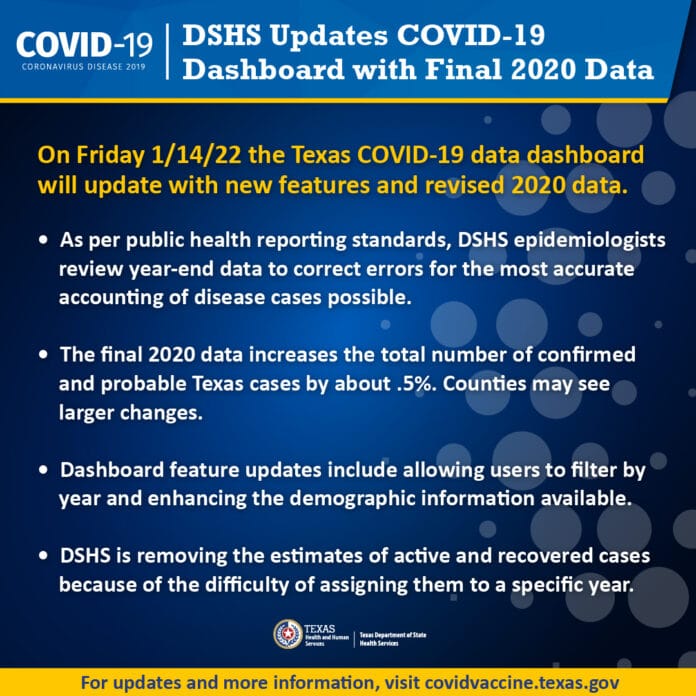Texas DSHS Makes Updates To COVID-19 Dashboard
With Friday’s update to the Texas COVID-19 data dashboard, the Texas Department of State Health Services is revising case totals to account for final 2020 case numbers. DSHS reported a total of 1,620,499 confirmed and 182,983 probable cases to the Centers for Disease Control and Prevention for 2020. As of today, statewide and county numbers will be adjusted to reflect those final totals.
Year-end data cleanup is a standard part of public health reporting. Epidemiologists review case information to weed out cases that may have been reported multiple times or by different jurisdictions, identify cases that may have been missed, verify cases are assigned to the right county, and ensure cases are classified correctly as either confirmed or probable. Any errors are corrected, and the result is the most accurate accounting of disease cases possible. Until the finalization process is complete and data reported to the CDC, all public health data is considered provisional and subject to change.
Monthly Demographics Will Be Available
DSHS is also making dashboard improvements, including allowing users to filter by year and enhancing the demographic information available. Data that shows disease cases by sex, age and race/ethnicity will include all Texas cases reported into the National Electronic Disease Surveillance System. Until now, demographic data has only been available for a small subset of cases. Users will also be able to view monthly demographics for COVID-19 cases and deaths, and a future update will add rate calculations. DSHS is removing the estimates of active and recovered cases because of the difficulty of assigning them to a specific year.
The final 2020 data increases the total number of confirmed and probable Texas cases by about one-half of one percent. Individual counties may see larger changes. Most are due to a combination of de-duplicating cases reported multiple times, correcting the county of residence, or correcting the classification of the case, for example, when a person who was initially a probable case got additional testing and became a confirmed case.
DSHS will continue to update the dashboard daily with the latest available information and make improvements in data collection and display over time.











